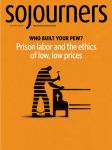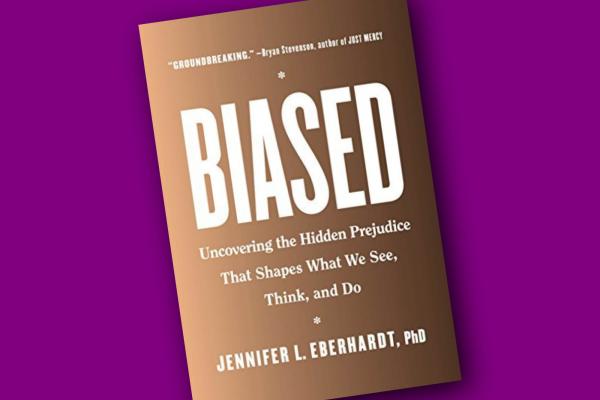BIASED IS FOR every person who claims to not see color. As someone who navigates that phrase regularly in my professional anti-racism work, I was thrilled to read a book that swiftly debunks that statement—with data to back it.
Jennifer Eberhardt thoroughly outlines how racial bias is unavoidable in a society that historically institutionalized white supremacy, and she incorporates case studies, personal experiences, surveys, scientific research, and numerical data to prove it. She walks us through examples of various settings and institutions where this bias presents itself: policing, incarceration, socioeconomic status, schooling, housing, employment, customer service, personal interactions. All confirming that racial bias is, in fact, everywhere.
The book’s purpose is not to guilt-trip or shame readers. Eberhardt notes several times her keen awareness that defensiveness is often a byproduct of discussing race, and I am well acquainted with this fragility. However, if readers are willing to approach this book with an open mind, then I hope they will see that Eberhardt simply presents us with unequivocal truth so that we may proceed as conscious individuals who can proactively address our own biases and hold society accountable for doing the same.
This book affirms important truths that are necessary to dismantle systemic racism: 1) As human beings, we are conditioned to have bias—it is a natural psychological process to which no one is immune. 2) Therefore, all of us do, in fact, see color. 3) Racial bias harms people of color. Conclusively, not only do we all inevitably see color, but we must see color to identify, examine, and rectify racism.
Biased is a gem, and it is clear how much knowledge and research Eberhardt skillfully wove into this informative but digestible piece. It is loaded with information, yet it never reads as dense. Its saturation of facts, studies, and examples informs readers. And its balance between personal narratives and quantitative facts makes it fit to be both a textbook for a university course and a new read for a book club group. Readers who are completely new to discussing race, experts in the field, and everyone in between can complete this book with a wealth of new knowledge, language, and personal reflection. That cannot be said about every book.
Biased comes right on time, as we navigate a period where discussions about race are critical yet still feared by many. Not only did I complete this read feeling more informed about the topic, but now when I inevitably encounter the “I don’t see color” comment, I can refer the person to Biased and spare my emotional labor for that moment. For that alone, I am grateful.

Got something to say about what you're reading? We value your feedback!







